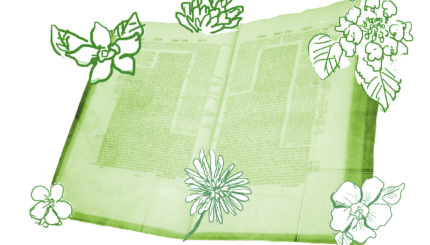Today we continue our exploration of the rules of muktzeh — objects that may not be moved on Shabbat or a festival — focusing on a very specific case: doves.
In the ancient world, it was common for people to raise doves for food. Ordinarily, doves are muktzeh. But someone who wished to increase the joy of a festival by slaughtering and eating doves could go down to their dovecote (essentially, a large birdhouse) on the eve of the festival and designate a few to become lunch the following day. This process of designating the doves would change their status so they were not muktzeh, allowing the person to return the next day and claim them.
In the first mishnah on our page, Hillel and Shammai disagree about the designation process. Shammai says that one must “shake” the doves intended for festival consumption, while Hillel says it is sufficient to verbally designate the doves that will show up on the festival table the next day.
Of course, it’s not difficult to see the potential pitfalls with either method of designation. Doves can fly around, and they might look alike and get confused with one another. Whether you shook it or just pointed a finger and said it aloud, how do you know that the dove you picked out as your festival dinner yesterday is the same dove you’re looking at today? Later commentators suggest remembering an identifying feature or marking the dove in some way, though the Gemara does not discuss these options specifically.

Help us keep Jewish knowledge accessible to millions of people around the world.
Your donation to My Jewish Learning fuels endless journeys of Jewish discovery. With your help, My Jewish Learning can continue to provide nonstop opportunities for learning, connection and growth.
While knowing one has claimed the right bird can be tricky, there are certainly cases in which a person returns on a festival and knows for sure they are now looking at the wrong bird. The second mishnah on our page addresses this possibility:
If one designated black and on the following day found white, or if one designated white and found black … they are prohibited.
It’s safe to assume that pigeons don’t change color overnight. A pigeon that was black on the eve of the festival will not suddenly be white the next morning. In fact, this is so intuitive that it irritates the Gemara, which offers the following opening comment on this mishnah:
This is obvious!
The rabbinic view is that the Mishnah is a sacred text full of religious insights — it would not waste words on things that are obvious. Therefore, the Gemara concludes, we must have misunderstood it. Rabba offers an alternative reading.
Rabba said: With what are we (actually) dealing here? With a case where one designated both black and white ones to be slaughtered, and he arose and found black ones in the place where the white ones had been and white ones where the black ones had been — lest you say these are the same and they merely changed places.
Rabba has reread the mishnah to make it, well, less black and white. Now, he suggests, the mishnah is really talking about a case when someone designated both black and white pigeons to eat, and came back and they were in different places — which makes it more difficult to know whether we are dealing with the same birds or not. In this case, the mishnah is teaching us, we do not slaughter the pigeons in order to be on the safe side.
Speaking of obvious: It seems obvious to me that this is not what the mishnah originally intended. For the rabbis, however, that’s not the point. It’s not that original intent doesn’t matter, but original intent is only one meaning among many that must be considered in the important work of sacred interpretation. Unlike doves, meaning — for the rabbis — is rarely black and white.
Read all of Beitzah 9 on Sefaria.
This piece originally appeared in a My Jewish Learning Daf Yomi email newsletter sent on September 10th, 2021. If you are interested in receiving the newsletter, sign up here.



